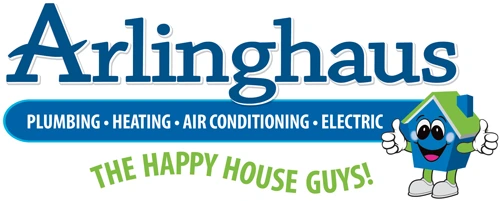As the temperature climbs into the eighties and higher, many of us are either thanking or cursing our HVAC system. An efficient HVAC system not only keeps your family comfortable in the summer and winter, it saves you money and increases your property value. With proper maintenance, an energy-efficient home can save you 30 percent on your energy bills, while reducing your environmental emissions. And, research shows that homeowners who upgrade their homes to a notable level of energy efficiency see gains in their resale value by as much as 9 percent. At selling time, this could translate into tens of thousands of dollars.
If you’re considering investing in a new energy-efficient HVAC system or updates to your current system, here are a few things to keep in mind that can save you money in the long run and increase the value of your home.
Trained HVAC Specialists
Buying a new energy-efficient HVAC system represents a significant outlay of money. After all, the peak efficiency of your current system is when your machine is new, installed correctly, maintained carefully and used appropriately. Over time, the maximum efficiency goes down. This may leave you with a system that does not keep your home appropriately cool or warm, is difficult to use or maintain, and makes future homebuyers less interested in your home.
The trick is to balance your current needs and budget with an eye towards increasing your property value. Your situation and home is unique, and a trained HVAC specialist will recognize and respect that. Good energy contractors will listen to your needs and make recommendations that work for your budget, your home and can still increase your property value. Before you contact your HVAC specialist consider:
- What is your comfort level?
- How much can you reasonably afford to invest in a new HVAC system at this moment?
- How soon would you like to recoup the cost of your investment?
The answers to these questions can help you and your HVAC specialist find the right HVAC system for you. And, remember to keep an eye towards the future. Replacing outdated HVAC systems with a new energy-efficient HVAC is an investment that will pay off in lower energy bills each month and with an increase in the resale value of your home.
Energy-Efficient HVAC Systems and Smart Technology
There was a time when installing an HVAC system running on unconventional forms of energy was prohibitively expensive. That’s not really the case anymore. The options in energy-efficient HVAC systems have certainly grown, and become more affordable within the last decade. Many homeowners are opting for a solar or geothermal system that reduces energy consumption by as much as 45 percent. Since these systems can replace your furnace, air conditioner and even your water heater, they simplify your entire system while saving you money on energy and maintenance.
Add smart technology, and you have more control over your energy consumption than ever before. Most HVAC experts emphasize the importance of purchasing a programmable thermostat that is ideal for your needs and learning how to use it to improve your energy efficiency. The most basic models of programmable thermostats help you minimize the time you spend adjusting the temperature up or down. Since they are designed for you to set it and forget about it, they are better able to maintain the perfect temperature for you without having to increase the cooling or heating load to accommodate unexpected changes. Used correctly, they can save you as much as 15 percent or more for heating and cooling.
The top-of-the-line programmable thermostats show you so much more than you would get from the basic models. So-called “smart thermostats” hook into your Wi-Fi system to provide you with data about your energy consumption. Many offer reports that you can download on a daily, weekly or monthly basis. This will show you when you are most likely to use (or overuse) your system, with advice on how to cut your energy expenses. These thermostats put your energy usage into your hands, where you can better influence it.
And, a new energy-efficient HVAC and programmable thermostat adds instant appeal to prospective homebuyers. “Nine out of ten buyers would rather buy a home with energy-efficient features and permanently lower utility bills than one without those features that costs 2 percent to 3 percent less.”
Investing in energy-efficient features like a new HVAC system and smart technology to optimize it will increase your property value and your wallet.
Energy-Efficient Ratings
An HVAC system you inherited with your house, even if you’ve kept it running properly, may hurt your property value or deter potential interest in your home. Prospective homebuyers will wrap the cost of replacing your older HVAC system with new equipment into the cost with other upgrades they wanted to make. Even a standard system, that works but is not energy-efficient, will likely be seen as a net neutral for homebuyers.
HVAC efficiency ratings help you to determine the peak efficiency of the various appliances in your system. For air conditioners and heat pumps, the ratings are called a “seasonal energy efficiency ratio” (SEER) and a “high-temperature rating” (EER). The SEER rating shows you how efficiently your air conditioner or heat pump converts fuel to energy. To gain the Energy Star label, models must have a SEER rating of 15 or higher. Old systems may have a number as low as six. The EER rating is designed to measure the machine’s ability to remain energy-efficient, even while the weather is very hot. The Energy Star label requires an EER rating of 12 for single-package systems, and 12.5 for split systems.
For furnaces and boilers, the Annual Fuel Utilization Efficiency (AFUE) is the rating you use. This rating, measured as a percentage, shows you how much of the fuel you use to run the furnace or boiler actually converts to heat. Your old furnace may have peak efficiency of 75 or lower. A new furnace with the Energy Star label must have an AFUE rating of 90-95 for gas-powered furnaces, and 85 percent for those running on oil.
But, if you still worry about the expense needed to put in a new, efficient HVAC system, you should take a look at the federal tax credits available on energy-efficient home upgrades. The credit makes it so convenient to improve your home, make it look better on the resale market and enjoy a lot of savings. When you purchase a new geothermal heating system, you can claim 30 percent of the cost as a credit on your taxes that year. This is a credit, not a deduction. If the geothermal heat pump costs $10,000 to purchase and install, you will save $3,000 on it if you make the purchase by the end of 2016. This investment will pay for itself within 5 to 7 years and be an attractive selling point for prospective homebuyers who are looking for permanently lower energy bills.
Keep an Eye on the Future
Making the right HVAC system choice for your needs is an important decision that can prove to be a great investment for your home. Just remember to keep an eye on the future as you make your decision with the help of trained HVAC specialists. The initial outlay may look scary, but it will pay off through accumulated monthly savings and by increasing the property value of your home.


